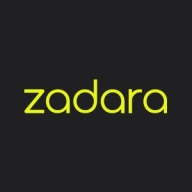


HPE StoreVirtual and Zadara compete in the enterprise storage solutions category. Based on various aspects, Zadara seems to have an edge due to its superior cloud integration and customer service.
Features: HPE StoreVirtual provides high availability, full platform integration, and unified management of virtualized workloads. It supports network RAID and adaptive optimization, enhancing performance and storage capabilities. Zadara excels with its cloud service integration, offering low-latency connections with platforms like Amazon EC2. It provides hybrid storage configurations, dedicated cores, and a single-tenant experience tailored for unique workloads.
Room for Improvement: HPE StoreVirtual faces challenges with latency, scalability, and complex licensing. Its management and alerting systems could be more user-friendly. Zadara needs to enhance its feature rollout, including auto-tiering and real-time synchronous replication. Improving the management interface for service partners would be beneficial.
Ease of Deployment and Customer Service: HPE StoreVirtual offers strong technical support but has inconsistent user experiences. It is primarily an on-premises solution. Zadara, supporting hybrid and public cloud models, is noted for its high-rated customer service and flexible deployment, meeting modern hybrid and cloud environment demands.
Pricing and ROI: HPE StoreVirtual's initial costs are high, but scalability reduces cost per user. Its licensing includes comprehensive features without extra charges. Zadara offers transparent, all-inclusive pricing, optimizing costs by avoiding overpayment for unused capacity. Both solutions promise significant ROI with high resilience and adaptable storage platforms.
It does not require much management once you set up correctly, so it saves time, allowing an admin to focus on other work.
The cost is not cheaper compared to AWS, and we have not seen the expected return on investment.
The support is done through email and is not that great, making it a very problematic area I've been dealing with for over four years.
I would rate them an eight out of ten.
I rate the technical support from Zadara as nine out of ten.
We lack adequate response times and a 24/7 service level agreement.
Pure Storage FlashBlade is scalable.
Zadara is a fully-fledged platform, and our customers are happy with its use.
In case there is any issue with any blade, the data is moved to another.
Technical support definitely needs significant improvement.
Its configuration should be easier.
Adding AI capabilities could enhance the offering as well.
Maintenance can also be complicated, especially when deeper troubleshooting requires navigating the CLI and searching for logs.
The pricing of Pure Storage FlashBlade is expensive compared to other products I used from other companies in the past, but one benefit is that they have built-in ransomware protection.
The pricing is considered expensive.
The best features of Pure Storage FlashBlade include better throughput and better performance.
We can plug in many blades, and we can have data up to one terabyte.
The most valuable feature is its storage management capability.
Zadara's troubleshooting feature is very valuable for me.



FlashBlade is the industry’s most advanced scale-out storage for unstructured data, powered by a modern, massively parallel architecture to consolidate complex data silos (like backup appliances and data lakes) and accelerate tomorrow’s discoveries and insights.
HPE StoreVirtual storage ensures that organisations can optimise the benefits of server virtualisation with cost-effective high availability and disaster recovery. The iSCSI-based, scale-out storage platform is easy to manage and change – meeting ongoing business demands without creating IT bottlenecks or application downtime. Overcoming the cost and management limitations of traditional storage area networks (SANs), HPE StoreVirtual nodes use storage clustering to form a single pool of resources that enable organisations to buy only what they need today, scaling non-disruptively to meet requirements in the future.
Zadara is a powerful enterprise-level storage solution whose design enables it to handle every aspect of a user’s data storage needs. It can be deployed in any location, using any protocol, and storing any data type that an organization requires. With Zadara, organizations can do everything that they were able to do with more traditional systems in a cheaper and more efficient way.
Zadara Benefits
Some of the ways that organizations can benefit by choosing to deploy Zadara include:
Zadara Features
File analytics. Organizations can leverage a powerful analytics package that can provide them with critical insights. These tools can help users sort through their data and make more informed data management decisions.
Reviews from Real Users
Zadara is a highly effective solution that stands out when compared to many of its competitors. Two major advantages it offers are its extensive suite of cloud solution integrations and its object storage capability.
Steve H., the chief technology officer at Pratum, writes, “One of the most valuable features is its integration with other cloud solutions. We have a presence within Amazon EC2 and we leverage computer instances there. Being able to integrate with computing, both locally within Zadara, as well as with other cloud vendors such as Amazon, is very helpful, while also being able to maintain extremely low latency between those connections.”
Mauro R., the CEO of Momit SRL, says, “The object storage feature is wonderful. With traditional storage, you have a cost per gigabyte that is extremely high or related to the number of disks. With Zadara Storage Cloud, you have a cost per gigabyte that you can cut and tailor to your needs independent of the number or size of the disks.”
We monitor all Software Defined Storage (SDS) reviews to prevent fraudulent reviews and keep review quality high. We do not post reviews by company employees or direct competitors. We validate each review for authenticity via cross-reference with LinkedIn, and personal follow-up with the reviewer when necessary.